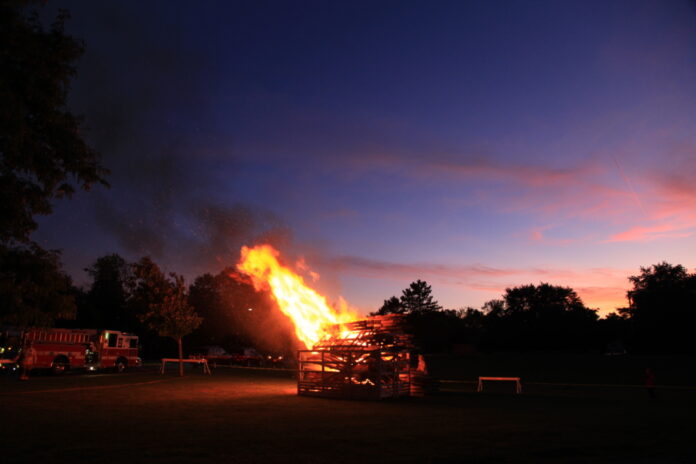By Gabe Guo
Background on Lowering the Voting Age
Lowering the voting age is an idea that has been floated around since the 1940s.
In the 1940s, the voting age was 21 years old. Yet, during WWII, President Franklin Delano Roosevelt had lowered the age to be drafted to 18 years old. In response, activists coined the chant: “Old enough to fight, old enough to vote.” Thus began the movement to lower the voting age.
Legislative action began at a local level, with Georgia in 1943 lowering the voting age for state and federal elections to 18 years old. Over the next few decades, support for lowering the voting age from elected officials grew, with President Dwight D. Eisenhower proclaiming in his 1954 State of the Union Address, “For years our citizens between the ages of 18 and 21 have, in time of peril, been summoned to fight for America. They should participate in the political process that produces this fateful summons.”
Finally, in March 1971, the 26th Amendment was passed, lowering the voting age from 21 to 18. Specifically, it states, “The right of citizens of the United States, who are 18 years of age or older, to vote, shall not be denied or abridged by the United States or any state on account of age … The Congress shall have the power to enforce this article by appropriate legislation.”
Now, in more recent times, the former 2020 presidential candidate Andrew Yang called for yet another lowering of the voting age to 16 years old. That sounds great, right?
Indeed, there is much evidence to support this. Jens Olav Dahlgaard writes in the Washington Post, “There are two good reasons to reduce the voting age. First, it is likely to help young people establish the habit of voting lifelong. Second, as my recently published research shows, it makes their parents more likely to vote as well.” In Elsevier’s Electoral Studies journal, Wagner et al write of voting in Austria, where the national election voting age is 16, “In addition, the quality of these citizens’ [voters under 18] choices is similar to that of older voters, so they do cast votes in ways that enable their interests to be represented equally well. These results are encouraging for supporters of a lower voting age.”
Yet, as we have learned from the lowering of the voting age from 21 to 18, change in Washington is almost always slow and gradual. Indeed, from the time Georgia lowered its voting age to 18, almost 30 years passed before the voting age nationwide was lowered to 18. From this, we can draw an important lesson: For change to take place, it must start locally.
My Proposal
So, how does change start locally, you may ask? School board elections, right here in Williamsville.
Specifically, I propose lowering the voting age for Williamsville Central School District’s school board elections and budget votes to 15 years old.
Rationale
Here’s why I think this is the best way to do it: As I stated before, change starts locally. So, what is the most local institution of government? Schools! (At least for teenagers.) Teenagers interact with their public school communities on a daily basis. Although it’s easy to forget, schools are definitely government entities. Yes, all of our teachers are employed by the government, receiving taxpayer-funded pensions upon their retirement. Not to mention, there is the American flag hanging in every classroom.
It logically follows that schools are, in all likelihood, the institutions of government which teenagers would know the best. After all, teenagers are the ones who learn in the taxpayer-funded classes, use the taxpayer-funded textbooks, and eat in the taxpayer-funded cafeterias. They have firsthand experience with the public school system, and know its successes and shortcomings. So, wouldn’t it make sense to give them some sort of a say in the school decision-making process? Yes, it would!
Now, to address the specific voting age of 15, as I wrote earlier, there is evidence to suggest that a voting age lower than 18 is beneficial. Traditionally, the age of 16 is proposed as the voting age which we should lower to. Yet, we must keep in mind that the proposals for lowering the voting age to 16 are generally in regard to national elections. A major reason against having an even lower voting age for national elections, like 14 or 15, is that people that young may not necessarily be informed about the political climate and the implications of their vote for president or senator. And this is a perfectly valid reason.
However, in school board elections, this concern is moot. How could teenagers not know the impacts of their votes? They literally experience it every single day when they sit in class, eat in the cafeteria, and read their textbooks. By age 15, a typical Williamsville teenager would be either a freshman or a sophomore. By then, they would have undergone 10 years of a Williamsville CSD education. After experiencing something for 10 years, it’s pretty likely that a typical person has at least some idea of what’s good about it and what’s bad about it.
Yet, I understand that the brains of middle schoolers may not necessarily be well-developed enough to understand and/or reason through the implications of their decisions, which is why I choose the age of 15.
Conclusion
As I mentioned earlier, change doesn’t occur overnight; it occurs gradually. That being said, if we want change, not just in our school district, but on a national level, we must take action. So, if you agree with the ideas in this article, let’s fight to make them a reality. We will go to school board meetings. We will nag our parents about the change that needs to take place in our schools. And yes, we will vote in school board elections.
The revolution starts now.

